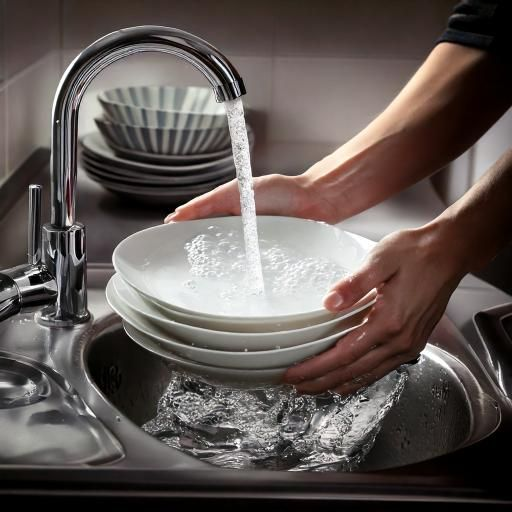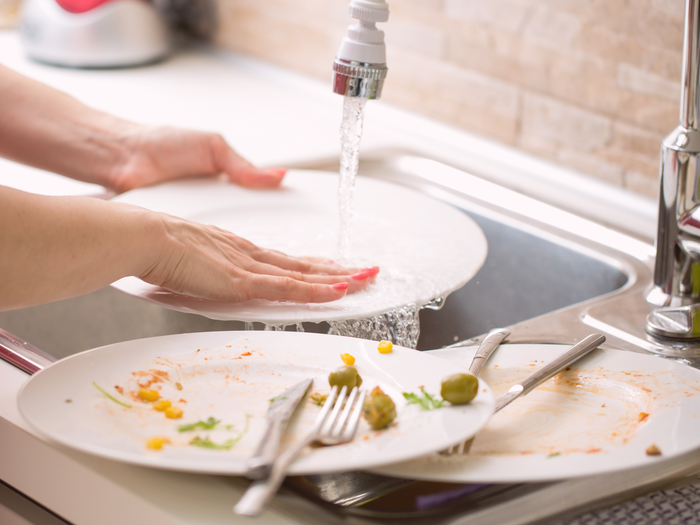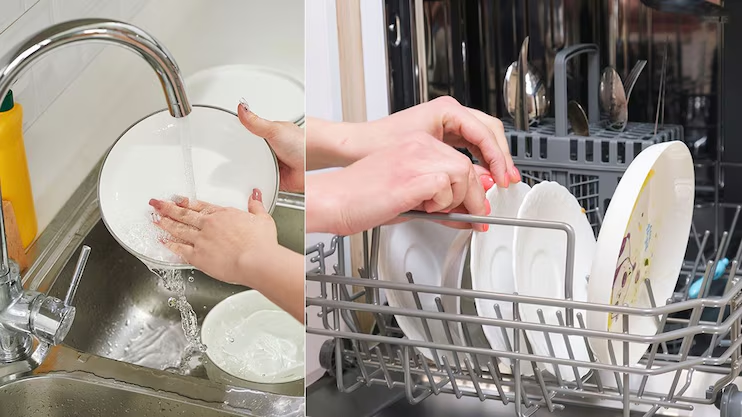The debate over whether dishes should be rinsed before loading them into the dishwasher has sparked countless household discussions. While some argue that pre-rinsing ensures a spotless clean, others believe it’s an unnecessary step thanks to modern technology. In this article, we’ll break down the reasoning behind both approaches, explore the capabilities of today’s dishwashers, and highlight the environmental and social factors at play. Let’s determine whether skipping the rinse is a smart choice or a recipe for disaster.
The Traditional Practice of Rinsing Dishes

For years, pre-rinsing dishes was considered the gold standard of dishwasher etiquette. This habit can be traced back to the days when dishwashers were less efficient at tackling food debris. People rinsed their dishes to prevent clogs, ensure a thorough clean, and avoid unpleasant smells.
This routine became second nature in many households, passed down as the “correct” way to load a dishwasher. But with advancements in technology, is it still necessary to follow this practice, or is it simply a relic of the past?
How Modern Dishwashers Work
Modern dishwashers have undergone significant improvements, making them far more capable than older models. Equipped with powerful spray arms, advanced filtration systems, and soil sensors, these machines can detect the level of food residue and adjust the wash cycle accordingly.
Manufacturers now design dishwashers to perform optimally with unrinsed dishes. Food particles left on plates provide the enzymes in detergents with something to break down, enhancing their cleaning power. By skipping the rinse, you allow the machine and detergent to do what they were designed for, resulting in sparkling clean dishes.
The Environmental Impact of Pre-Rinsing
One of the strongest arguments against pre-rinsing is its impact on water consumption. Running water to rinse dishes adds up quickly, wasting gallons unnecessarily. Modern dishwashers are designed to be water-efficient, often using less water per cycle than handwashing or pre-rinsing.
In a world where water conservation is increasingly important, skipping the rinse is an easy way to reduce your environmental footprint. This is especially critical in areas facing water shortages or where sustainability is a priority.
Understanding Dishwashing Detergents
The evolution of dishwashing detergents has played a significant role in reducing the need for pre-rinsing. Today’s detergents are formulated with powerful enzymes and surfactants that actively break down grease, starches, and proteins. These ingredients work best when they have something to latch onto, making food residue an essential part of the cleaning process.
By pre-rinsing your dishes, you may inadvertently reduce the detergent’s effectiveness. Allowing the detergent to target the food residue ensures a deeper clean and better results.
Common Misconceptions About Dishwashing

Many misconceptions surround dishwashing practices, fueling the debate over pre-rinsing. One common belief is that skipping the rinse will leave dishes dirty. However, modern dishwashers, when paired with high-quality detergent, can effectively handle most food particles.
Another misconception is that unrinsed dishes will clog the dishwasher. While this was true for older models, today’s machines are equipped with filters and self-cleaning mechanisms to handle debris. Regular maintenance, such as cleaning the filter, ensures the dishwasher remains efficient.
Potential Drawbacks of Skipping the Rinse
Although modern dishwashers are designed to handle unrinsed dishes, there are some scenarios where pre-rinsing might still be necessary. Heavily soiled plates or sticky residues can occasionally require extra attention. Failing to clean the dishwasher’s filter regularly can also lead to reduced performance, as accumulated food particles may cause blockages over time.
Striking a balance between convenience and maintenance is key. By scraping off excess food and maintaining the dishwasher, you can avoid potential issues without the need for pre-rinsing.
The Role of Household Dynamics

Dishwashing habits are often influenced by personal preferences and family traditions. In households with multiple generations, differing opinions on whether to rinse or not can lead to minor conflicts. For instance, some individuals may feel that skipping the rinse compromises cleanliness, while others prefer the efficiency of modern practices.
Open communication and a willingness to adapt can help families find a routine that works for everyone. By understanding the capabilities of the dishwasher and considering environmental factors, compromises can be made to satisfy both traditionalists and modernists.
What Experts and Manufacturers Say

Appliance manufacturers and experts agree that pre-rinsing is largely unnecessary for most modern dishwashers. They recommend loading dishes directly, emphasizing the importance of using high-quality detergents and selecting the appropriate wash cycle.
Consulting the user manual for your specific dishwasher model can provide valuable insights into best practices. Many manufacturers also offer customer support to address any concerns about performance or maintenance.
Finding a Balanced Approach
Ultimately, whether to rinse or not comes down to personal preference, the capabilities of your dishwasher, and your household’s priorities. For those with modern machines, skipping the rinse saves time, conserves water, and enhances detergent performance. However, for heavily soiled dishes or outdated dishwashers, a quick rinse might still be necessary.
By understanding the reasoning behind these practices and embracing the technology available, you can establish a dishwashing routine that works best for your home. Whether you’re a staunch advocate of traditional methods or a fan of modern conveniences, the goal remains the same: clean dishes and a happy household.


